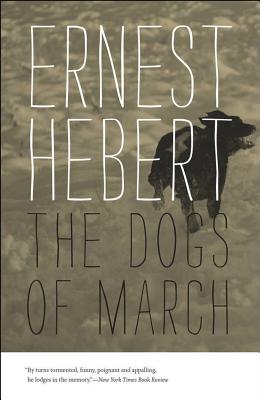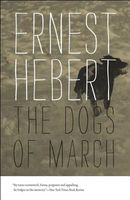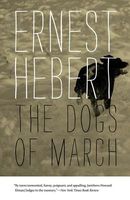- Welcome to FictionDB, Guest
- | My Account
- | Help

The Dogs of March — Ernest Hebert

Howard Elman is a man whose internal landscape is as disordered as his front yard, where native New Hampshire birches and maples mingle with a bullet-riddled washer, abandoned bathroom fixtures, and several junk cars. Howard, anti-hero of this first novel in Ernest Hebert's highly acclaimed Darby Chronicles, is a man who is tough and tender.
Howard's battle against encroaching change symbolizes the class conflict between indigenous Granite Staters scratching out a living and citified immigrants with "college degrees and big bank accounts." Like the winter-weakened deer threatened by the dogs of March--the normally docile house pets whose instincts arouse them to chase and kill for sport--Howard, too, is sorely beset.
The seven novels of Hebert's Darby Chronicles cover 35 years in the life of a small New England town as seen through the eyes of three families--the Elmans, the Salmons, and the Jordans--each representing a distinct social class. It all starts with The Dogs of March, cited for excellence in 1980 by the Hemingway Foundation (now the Pen Faulkner Award for Fiction).
Genres
EDITIONS
Sign in to see more editions-
- Jun-1979
- Ultramarine Publishing Company, Incorporated
- Hardcover
- ISBN: 0893661449
- ISBN13: 9780893661441





